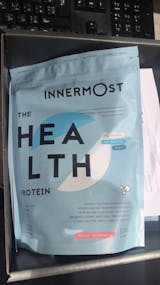Green tea has been a popular beverage in China for thousands of years, but matcha, pronounced “mah-cha” was developed and popularised by the Japanese just a few centuries ago. Zen monks say that it helps them remain calm but alert whilst meditating and tout it as their secret to living long, stress-free lives.
So, let’s get with the times and see why you should be having your daily dose of matcha green tea, shall we?
What is matcha?
Matcha, which is whole leaf green tea ground into a fine powder, is a centuries old Japanese staple. Traditionally in Japan, the green powder, which has numerous health benefits that promises not only to increase energy levels, but also boost metabolism and detox the body, is mixed into hot water and enjoyed as a tea drink. Matcha is a real healthy hero, and it should be incorporated into all of our diets.
Why? We’re about to show you.
What are the health benefits of matcha?
Matcha health benefits are extensive and have a great regulatory effect on the body. Matcha is higher in antioxidants than normal green tea because the whole leaf is ingested rather than just thrown away after being steeped in bags. In fact, a 2003 University of Colorado study confirmed that 1 unit of matcha green tea has 137 times the amount of antioxidant EGCG compared to a conventional green tea. Other health benefits include…
- Rich in antioxidants
- Easy to prep
- Helps your heart
- Boosts brain productivity
If that wasn’t enough, the antioxidant levels of matcha are so amazing that they are 17x greater than blueberries and 60x greater than spinach. Amazingly, matcha also has the potential to boost weight loss! A study published in the American Journal of Clinical Nutrition found that the link between matcha for weight loss is strong. This is because the green tea extract is rich in catechins and has thermogenic properties which can promote fat oxidation by increasing energy expenditure. As well as a thermogenic effect, their consumption reduces fat absorption and energy intake due to their effect on their gut microbiota.
How can I incorporate matcha in my diet?
Matcha is a green powder with a kind of fresh, grassy taste, which makes it an interesting addition to any recipe- sweet or savoury. But be wary, quality is key, so opt for pure matcha, which although expensive, has more health benefits than cheaper alternatives.
Whilst on the go, you can now buy pretty good matcha lattes from many coffee chains and stores. These can help you feel ‘balanced’ whilst offering stable but large caffeine highs. What’s more, why stop at matcha lattes? If you’re not too keen on these, or maybe you’re looking for suitable supplements to incorporate this ingredient into your diet, matcha can be found in The Tone Capsules.
Summary
So from this quick introduction to matcha, we’ve learned that matcha is packed with antioxidants and has potential metabolism-enhancing, stress reducing, cholesterol lowering, and immune boosting effects. With all these benefits and the delicious taste of matcha green tea, we wholeheartedly recommend you give this one a go.
References
- Cardoso, Gabrielle Aparecida, et al. "The effects of green tea consumption and resistance training on body composition and resting metabolic rate in overweight or obese women." Journal of medicinal food 16.2 (2013): 120-127. Click here.
- Egert, Sarah, et al. "Simultaneous ingestion of dietary proteins reduces the bioavailability of galloylated catechins from green tea in humans." European journal of nutrition 52.1 (2013): 281-288. Click here.
- Heinrich, Ulrike, et al. "Green tea polyphenols provide photoprotection, increase microcirculation, and modulate skin properties of women." The Journal of nutrition 141.6 (2011): 1202-1208. Click here.
- Hodgson, Adrian B., Rebecca K. Randell, and Asker E. Jeukendrup. "The effect of green tea extract on fat oxidation at rest and during exercise: evidence of efficacy and proposed mechanisms." Advances in Nutrition: An International Review Journal 4.2 (2013): 129-140. Click here.
- Hursel, Rick, and Margriet S. Westerterp-Plantenga. "Catechin-and caffeine-rich teas for control of body weight in humans." The American journal of clinical nutrition 98.6 (2013): 1682S-1693S. Click here.
- Weiss, D. J., & Anderton, C. R. (2003). Determination of catechins in matcha green tea by micellar electrokinetic chromatography. Journal of Chromatography A, 1011(1-2), 173-180. Click here.






















